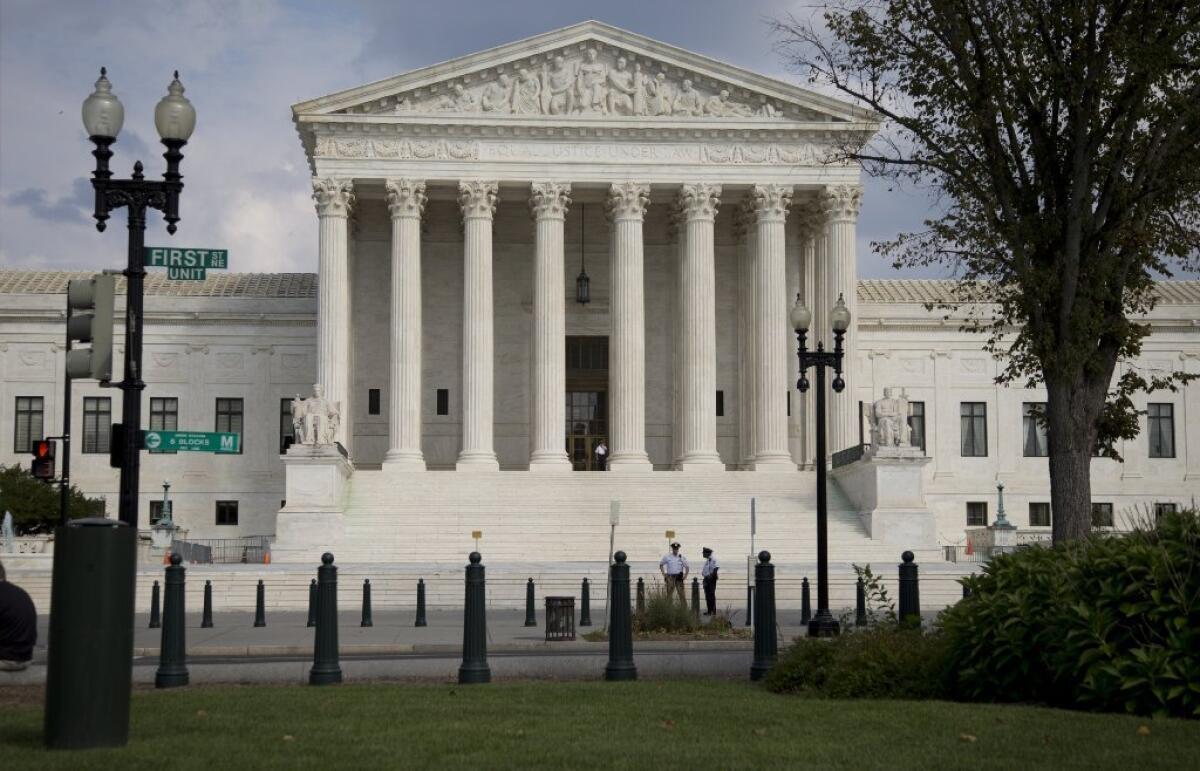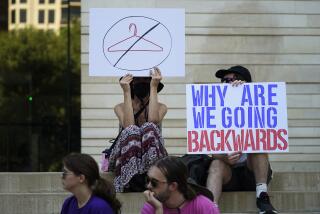Supreme Court takes first big abortion case since Kavanaugh joined the court

The Supreme Court announced Friday that it will hear its first major abortion case with Justices Brett M. Kavanaugh and Neil M. Gorsuch on the bench, and decide whether states may enforce far stricter regulations on doctors who perform abortions.
The case does not call for overturning Roe vs. Wade. But the election-year ruling will signal whether the court’s conservative majority is ready to give states more leeway to regulate abortion, even if doing so has the effect of shutting down all or most of the clinics that perform abortions.
At issue is a Louisiana law that allows the state to close down clinics if their doctors do not have admitting privileges at a nearby hospital.
Three years ago, the high court struck down a similar Texas law that would have shut down most abortion clinics outside the major cities because their doctors did not have the required admitting privileges at a local hospital.
In a 5-3 decision in 2016, the justices said the Texas admitting-privileges rule did more harm than good and put an undue burden on women in rural parts of Texas because it had the effect of closing all abortion providers outside of major cities.
But Justice Anthony M. Kennedy was in the majority then, joining liberals to maintain abortion rights. Upon his retirement last year, Kennedy was replaced by Kavanaugh, who is seen by many as a potential fifth key vote on the court to overturn or restrict the landmark Roe ruling.
To the surprise of abortion rights lawyers, a conservative appeals court in New Orleans upheld the Louisiana law last year even though it was nearly identical to the Texas law that was struck down.
Abortion rights advocates said the Louisiana law, if put into effect, would leave the state with only one doctor who may perform abortions. They allege that most hospitals avoid controversy by refusing to grant admitting privileges to doctors who perform abortions.
But the 5th Circuit Court of Appeals said the law would not put an undue burden on many women, asserting that doctors probably could obtain admitting privileges if they persisted.
Lawyers for the Louisiana clinics filed an emergency appeal at the Supreme Court. And in February, the justices issued a temporary order on a 5-4 vote blocking the Louisiana law from taking effect. Chief Justice John G. Roberts Jr. cast his vote with four liberal justices, while the four conservatives dissented.
Throughout his career, Roberts has regularly opposed abortion rights but has not said whether he would overturn Roe vs. Wade if given the opportunity.
Abortion rights advocates called on the court to uphold its precedents.
Jennifer Dalven, director of the ACLU’s Reproductive Freedom Project, said that just three years ago, the high court “held that a virtually identical law served no medical purpose and was unconstitutional. If the rule of law means anything, it means that the court cannot sit by and watch as the lower court thumbs its nose at the Supreme Court precedent and at the people’s constitutional rights.”
Welcoming the court’s announcement, Catherine Glenn Foster, president of the antiabortion group Americans United for Life, said the justices should uphold “the common-sense Louisiana admitting privileges law” because it will “protect women from fly-by-night and dangerous” abortion providers.
She noted that the court will also consider a key procedural question about whether a doctor has standing to challenge a medical requirement, or if only a patient may do so.
In Friday’s brief order, the court said it will rule on this issue of “third-party standing.” If the justices were to rule for the state on this issue, it could make it much harder for abortion rights advocates to quickly challenge state abortion bans in federal court.
The Louisiana case has the potential to recast the legal standard set for abortion by the court in 1992. Led by Justice Sandra Day O’Connor, the court said at that time that states may regulate abortion so long as they did not put an “undue burden” on women who seek an abortion prior to the third trimester of a pregnancy.
But ever since, judges and states have been sharply divided over what that means and which regulations are permissible.
Oral arguments in June Medical Services vs. Gee are likely to be held next year, with a decision by June, just months before the presidential election.
In a different abortion-related case in May, the court in a brief order upheld an Indiana law that required abortion facilities to bury or cremate the remains of a fetus. At the same time, the justices turned down the state’s appeal of a law that would have prohibited abortions based on the race, sex or potential disability of the fetus.
The court has also been asked to hear a separate dispute over a state abortion law in Indiana, but it has not agreed to hear that case. The Indiana law in question requires women seeking an abortion to undergo an ultrasound exam the day before the procedure.
Judges blocked the law from taking effect because they said it would require some women to make two trips across the state to have a legal abortion.
The court also said Friday it will decide whether federal law may make it a crime to “encourage” immigrants in the country illegally to stay.
The 9th Circuit Court of Appeals struck down the law on free speech grounds in a case involving Evelyn Sineneng-Smith, who operated as an immigrant consultant in San Jose. Prosecutors said she was profiting by filing frivolous visa applications for home healthcare workers who were in the country illegally.
The Justice Department said the law is crucial, and the court said it will hear the appeal in U.S. vs. Sineneng-Smith.
The justices will also decide whether federal authorities may approve the building of a gas pipeline under the Appalachian Trail in Virginia. Environmentalists sued, and an appeals court blocked the project. The case is U.S. Forest Service vs. Cowpasture River Assn.
More to Read
Start your day right
Sign up for Essential California for news, features and recommendations from the L.A. Times and beyond in your inbox six days a week.
You may occasionally receive promotional content from the Los Angeles Times.







